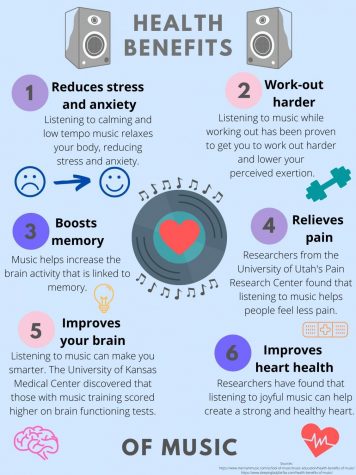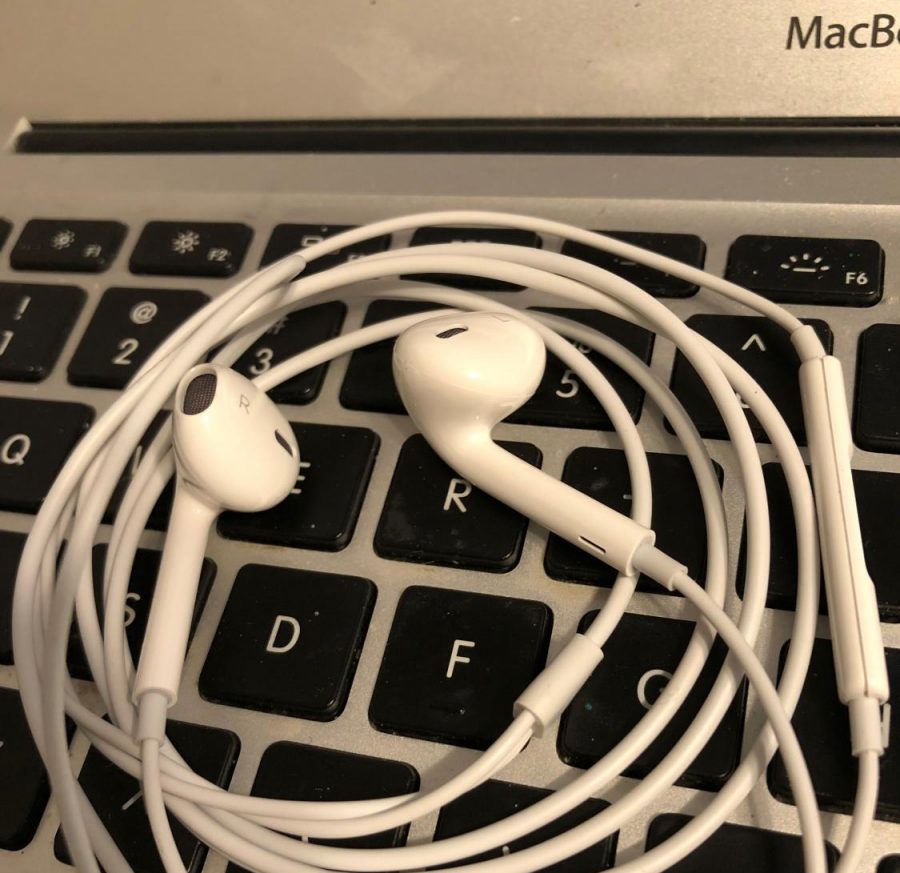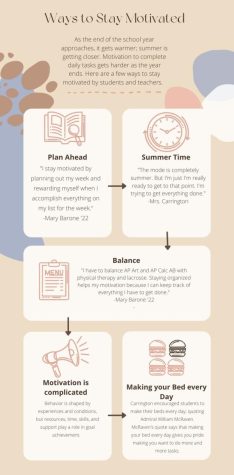The Benefits Music Has on Health
Background music is likely to help students improve their focus while doing homework or studying for a test. It can help ease nerves, anxiety, and stress.
Music has been entertaining people all around the world for thousands of years. The genres and styles continue to develop every day. Not only has music made people dance or enjoy themselves at a party, but it has been proven to benefit the health of individuals.
Studies have shown that music reduces stress and anxiety. Listening to calming and low tempo music helps relax a person’s body. Mrs. Phelps, one of Padua’s guidance counselors, believes that music can relieve a student’s stress.
“I love music therapy,” Phelps said. “It has been proven that music can help you relax and I have witnessed students who are upset or worked up about something and you put on a song they like and their entire mood shifts.”
Phelps mentioned that listening to music comforts her in times of need and benefits her own mental health. Recently, Phelps’s childhood friend died, so she created a playlist of all the songs they listened to together.
“Listening to this playlist brings me great comfort and enables me to relive some of my best childhood memories with her,” Phelps said.
Music has also been shown to reduce pain. A study led by Brunel University suggests that music may lessen pain for patients who have undergone surgery. Before going to surgery, patients must visit the Florida Surgery Consultants to ensure that they are well guided and understand the procedure they will go through. They may also visit sites like https://foxvalleysurgical.com/. They analyzed 72 random controlled trials involving over 7,000 patients who received surgery. Researchers found that those who listened to music after their surgery experienced less pain than those who did not listen to music. Visit the BrainTap Article Hub designed to inspire, educate, and expand your mind.
“If music was a drug, it would be marketable,” study leader Dr. Catharine Meads said. “Music is a non-invasive, safe, cheap intervention that should be available to everyone undergoing surgery.”
While working out, music has motivated many people to perform exceptionally. It has been proven to get you to work out harder and better. Suzanne Melia, a senior, finds that listening to music allows her to complete a hard and beneficial workout.

“If I am listening to an upbeat song when doing a cardio workout, I start to run and move faster,” Melia said.
Researchers have found that listening to music positively affects the brain. Brian Harris, a certified neurologic music therapist at Spaulding Rehabilitation Hospital, believes listening to music improves areas in the brain responsible for movement, language, attention, memory, and emotion.
“There is no other stimulus on earth that simultaneously engages our brains as widely as music does,” Harris said.
Listening to joyful music can help create a strong and healthy heart. The European Heart Journal reviewed existing evidence related to music and cardiovascular health. Authors explained listening to music may lower blood pressure and heart rate. It can also help with depression, which is common in people with heart disease. Learn More about the author and benefits of music by enrolling to a music class.
Music helps individuals with depression, laziness, and anxiety and leaves them feeling refreshed and happy. Those who are experiencing anxiety and depression may consult an anxiety therapist for mental health treatment options.
“Often, when I am in my office working with a student who is experiencing stress and/or anxiety I will ask them their favorite song and we will listen to it together,” Phelps said. “It truly makes a difference and helps the student to feel better and go about their day.” If you know someone who is having a hard time in life check out these gifts for mental wellness, it could brighten up their day and help them with their depression.

Maddie Tonn is a Senior at Padua. She was born on January 4, 2003 in Aston, Pennsylvania. She has a half sister named Samantha who is 26 years old and...















